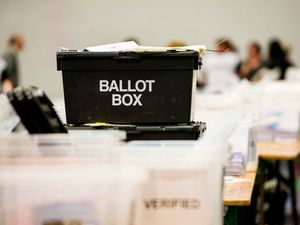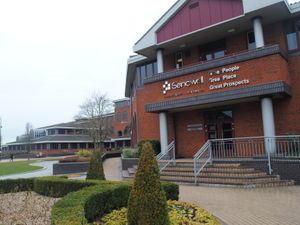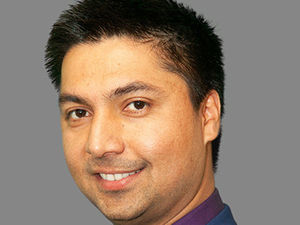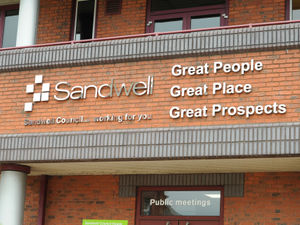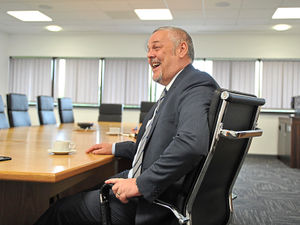Dudley local election preview: Marginal borough on a knife-edge again
We take an in-depth look at the political situation in Dudley ahead of the borough's 2021 election in May.
Dudley Profile
Population: 320,320
Politics
Control of this classic marginal authority has switched repeatedly since 1973. The Conservatives currently run the council, although they have one less seat than Labour. The borough has swung towards the Tories in recent years, and now has four Conservative MPs in Mike Wood, Marco Longhi, Suzanne Webb and James Morris.
History
Originally a municipal borough, Dudley became a county borough in 1889 based around the main town centre, along with the suburbs of Netherton and Woodside. Although surrounded by Staffordshire, the borough was associated with Worcestershire for non-administrative purposes, forming an exclave of the county until 1966, when it was transferred to Staffordshire after an expansion of the borough boundaries. Following local government reorganisation in 1974, Dudley took in the boroughs of Halesowen and Stourbridge to form the present-day Metropolitan Borough of Dudley, in the newly formed West Midlands county.
Claim to fame
The capital of the Black Country is home to Dudley Zoo, the Black Country Museum and the Limestone Caverns, all jewels of local tourism. The museum is commonly used for film and television. Stan and Ollie filmed scenes at the attraction, which is just yards from the old Hippodrome where Laurel and Hardy used to perform. Peaky Blinders also films there. Merry Hill shopping centre also sits within the borough. Sir Lenny Henry and Duncan Edwards are among the town’s most famous sons.
Future prospects
An expansion of the Black Country Museum will help the borough’s tourism to continue to thrive and Merry Hill is likely to survive financial problems that has beset its parent company. An overhaul of public transport networks including a new bus station and Metro line will help connect the town to other areas. Dudley College continues to thrive and expand. The main challenge for its traditional town centre – currently a hive of construction work as part of a £1bn regeneration plan – is to find a way to keep attracting people in. Major developments include the £80m Portersfield scheme and a £24.5m leisure centre. Although campaigners refuse to give up the fight, Dudley Hippodrome finally appears set for demolition, paving the way for work to start on a new university park. It is hoped that a huge new police ‘super station’ at land formerly earmarked for a mosque will be given the green light later this year.
Hotly-contested fight for borough on a knife-edge
The words “on a knife edge” usually follow Dudley when election time comes around, and with good reason.
The borough is one of the most hotly contested in the country, with power regularly shifting between Labour and the Tories.
Labour held sway for five years until 2017, when its minority administration lost control to the Ukip-backed Conservatives.
In 2018 the Conservatives and Labour were left tied on 35 seats after the local elections, but the Tories regained control when the authority’s only remaining Ukip councillor, Kerry Lewis, defected to the Tories.
Since then the plot has thickened further, with Norton councillor Mike Attwood quitting the Conservatives and joining Labour, before he was kicked out altogether for failing to attend meetings.
It leaves Tory council leader Patrick Harley in an unusual position heading into these elections – leading an authority with less councillors than the opposition.
The state of play
A third of the total seats on Dudley Council are being contested on May 6, as well as elections for vacant seats in Kingswinford North and Wall Heath, where Nicola Richards MP has stood down, and Belle Vale after Councillor Jake Cooper stood down. In total 26 seats are up for election.
Last time these seats went before voters in 2016 Labour won 14 to the Tories 10, with Ukip taking one.
Since then the political landscape has changed drastically, with the Conservatives dominating Dudley borough in the parliamentary elections and Ukip falling away as a political force.
Mr Harley will be confident the swing towards his party locally will translate into a majority at the council house after May 6.
Meanwhile Labour group leader Councillor Qadar Zada spent six months heading the council until May 2019, and will be hoping for a return to power.
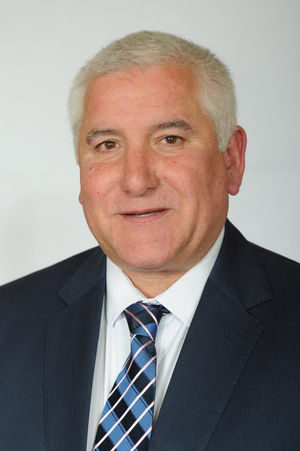
While campaigning has been restricted due to Covid, the two main parties have clashed over issues including a hike in council tax.
And in recent weeks words have been exchanged over the breakdown of Dudley’s deal with Wolverhampton Council for residents to use the Anchor Lane tip.
Mr Harley has pointed out that Dudley has received hundreds of millions of pounds from the government in Covid support and for regeneration projects.
Mr Zada has accused the Tories of failing to secure enough funding to help families in the borough get through the pandemic.
Controversy has surrounded both main parties in the past 12 months.
Labour’s former council leader Pete Lowe was investigated over alleged anti-Semitic tweets, while Tory councillor Colin Elcock was found to have breached the code of conduct by posting tweets branded Islamophobic. Mr Elcock has been expelled from the Conservative Party and now sits as an independent.
Long-standing Brierley Hill Labour councillor Zafar Islam raised eyebrows when he appeared to question the safety of the Covid jab.
What to look out for
While this is highly likely to be a Red vs Blue battle, other parties will be keen to have their say.
The Lib Dems are contesting the majority of seats, with 21 candidates, while there are also candidates from the Green Party and the rebranded Brexit Party, Reform UK.
Ukip – once such a powerhouse in the borough – has candidates in three wards, while the Black Country Party (BCP) is also represented.
Stuart Henley, who formed the BCP in 2019, is standing for the Tories this year in Halesowen North, while Belle Vale’s Tory councillor Laura Taylor is moving over to contest Mike Attwood’s old seat in Norton.
Former council leader Les Jones is standing down for the Tories in Pedmore and Stourbridge East after 22 years. His replacement is James Clinton, whose father Rob Clinton is standing in Quarry Bank and Dudley Wood.
For Labour, Julie Baines is standing down in Amblecote.
Controversial former Tory councillor Abdul Qadus is back in Lye and Stourbridge North, this time representing the Lib Dems.
Things could be tight in a number of seats if history is anything to go by.
In 2016 Alan Hopwood gained Wollaston and Stourbridge Town for the Conservatives by just three votes, and in 2019 Tory Steve Clark edged out the Labour candidate in the same ward by six votes.
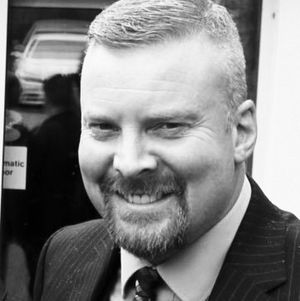
Halesowen North, and Kingswinford North and Wall Heath are also expected to be close, as is the key battleground of Brockmoor and Pensnett, which Labour won in 2016 but has swung towards the Tories in recent elections.
The Tories also have their eyes on a major upset in Brierley Hill, where voters have only ever picked Labour since the mid-1970s.
However, support has ebbed away in the last three elections and Labour won by just 25 votes in the ward two years ago.
Netherton, Woodside and St Andrew’s seems an unlikely Conservative target on the face of it, but they believe the battle between Tory candidate Damian Corfield – himself a former Labour candidate – and Labour’s Helen Betts-Patel will be a close one.
The Conservatives should win in Wordsley, where Kerry Lewis is defending the seat she won for Ukip in 2016.
Labour should comfortably hold St Thomas’s, Castle and Priory and St James’s, and should also retain Upper Gornal and Woodsetton.
Heading into the election, the Tories appear to be quietly confident of securing an overall majority, while Labour sources suggest their party is hoping to cling on to what they currently have.
As ever, it is impossible to predict the outcome of an election in Dudley with any great confidence.

